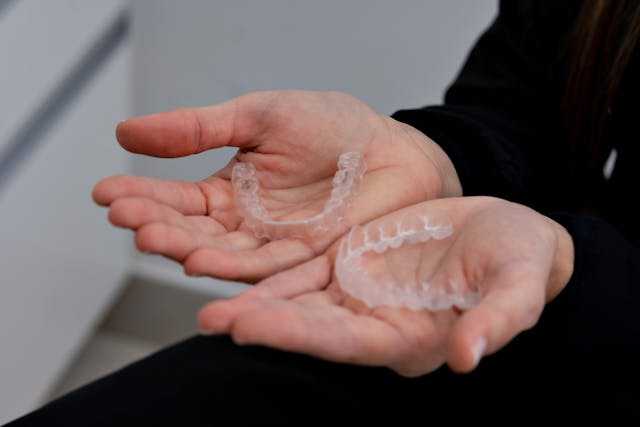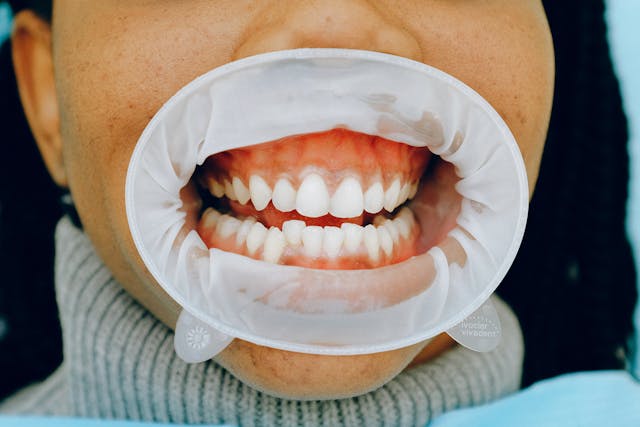Introduction
Did you know that taking care of your oral health is not just about having a bright smile? For people with diabetes, maintaining good oral hygiene plays a crucial role in managing blood sugar levels and overall health. In this article, we’ll explore the connection between oral hygiene and diabetes management, offering practical tips and insights to help you stay healthy. Let’s dive in!
At Diamond Dental Care, we offer a variety of solutions to address most aesthetic concerns. During your visit, we’ll perform a thorough examination, take X-rays, and discuss your desired timeframe before presenting you and your parents with several treatment options. Given that some treatments may require specific timeframes, it’s advisable to book your appointment with us as soon as possible.
To schedule an appointment, call us at (909) 860-7579. You can also connect with us on Facebook or share your feedback on Yelp. Thank you!
Understanding Oral Hygiene
What is Oral Hygiene?
Oral hygiene refers to the practices that keep your mouth, teeth, and gums healthy. It involves brushing, flossing, and regular dental visits. Maintaining good oral hygiene helps prevent common issues like cavities, gum disease, and bad breath.
Why is it Important?
Oral hygiene is more than just a cosmetic concern. Poor oral health can lead to infections, which may spread to other parts of your body. For people with diabetes, these infections can worsen their condition, making oral hygiene an essential part of diabetes management.
Understanding Diabetes
What is Diabetes?
Diabetes is a chronic condition that affects how your body processes glucose (sugar). Normally, insulin helps your body use glucose for energy, but in people with diabetes, this process is disrupted, leading to high blood sugar levels.
Types of Diabetes
There are two main types of diabetes:
- Type 1 Diabetes: The body does not produce insulin.
- Type 2 Diabetes: The body does not use insulin properly, leading to insulin resistance.
Both types can have a significant impact on your oral health if not properly managed.
The Link Between Oral Health and Diabetes
How Diabetes Affects Oral Health
High blood sugar levels can weaken the immune system, making it harder for your body to fight off infections. This includes infections in your mouth, such as gum disease. Diabetes also slows down healing, meaning any oral infections or wounds take longer to recover.
The Role of High Blood Sugar Levels
When your blood sugar is high, it increases the amount of sugar in your saliva. This excess sugar feeds harmful bacteria in your mouth, leading to plaque buildup, cavities, and gum disease.

Common Oral Health Issues in Diabetic Patients
Gum Disease
Also known as periodontal disease, gum disease is an infection of the gums that can destroy the bone supporting your teeth. Diabetics are more prone to gum disease, and it can make it harder to control blood sugar levels.
Dry Mouth (Xerostomia)
People with diabetes often experience dry mouth due to reduced saliva production. Saliva helps protect your mouth by washing away food particles and neutralizing acids. Without enough saliva, you are at higher risk for tooth decay and gum disease.
Thrush (Oral Fungal Infections)
Diabetics are also more susceptible to oral fungal infections, like thrush. This is because high blood sugar levels can promote the growth of yeast in the mouth.
Tooth Decay
High glucose levels in saliva can lead to an increased risk of cavities. Without proper care, this can result in significant tooth damage over time.
The Impact of Poor Oral Hygiene on Diabetes
Increased Blood Sugar Levels
Poor oral hygiene can cause infections that may raise blood sugar levels, making diabetes harder to manage. For example, untreated gum disease can cause inflammation, which may increase insulin resistance.
Inflammation and Its Effect on Insulin Resistance
Inflammation from oral infections doesn’t just stay in your mouth. It can spread throughout the body, contributing to insulin resistance and making it even more challenging to control diabetes.
How Good Oral Hygiene Can Help Manage Diabetes
Reducing Gum Inflammation
By taking care of your teeth and gums, you reduce the risk of gum inflammation. This, in turn, helps manage your blood sugar levels, as less inflammation in the body means less insulin resistance.
Maintaining Stable Blood Sugar Levels
Good oral hygiene minimizes the chances of developing infections that could raise blood sugar levels. This helps keep your diabetes under control.
Best Oral Hygiene Practices for Diabetic Patients
Brushing Techniques
Brush your teeth at least twice a day with a soft-bristled toothbrush. Use fluoride toothpaste to strengthen your enamel and fight decay.
Flossing Regularly
Floss daily to remove plaque and food particles between your teeth, where your toothbrush can’t reach. This helps prevent gum disease, which is especially important for diabetics.
Using Antibacterial Mouthwash
Using an antibacterial mouthwash can reduce harmful bacteria in your mouth, helping prevent infections and keeping your gums healthy.
The Role of Regular Dental Checkups in Diabetes Management
Early Detection of Oral Issues
Regular dental visits are crucial for early detection of any oral issues that may complicate diabetes. Catching problems like gum disease early can prevent more serious health issues.
Professional Cleaning and Care
Professional cleanings at Diamond Dental Care help remove plaque buildup, reducing your risk of gum disease and tooth decay. Our team ensures your oral health is in top shape, helping you manage your diabetes better.
The Importance of Diet for Oral and Diabetes Health
Reducing Sugar Intake
Limiting your sugar intake not only helps manage blood sugar levels but also prevents tooth decay. Opt for whole foods and reduce sugary snacks.
Eating a Balanced Diet
A balanced diet rich in fruits, vegetables, and whole grains supports both oral and diabetes health. Nutrient-rich foods help your body fight infections and keep your mouth healthy.
How Diabetes Medications Affect Oral Health
Side Effects on Oral Health
Some diabetes medications can cause dry mouth or other oral side effects. It’s essential to stay hydrated and talk to your dentist if you notice any changes in your oral health.
Managing These Side Effects
Drinking plenty of water, chewing sugar-free gum, and using moisturizing mouth sprays can help alleviate dry mouth and other side effects of diabetes medications.
The Role of Hydration in Oral and Diabetes Health
Preventing Dry Mouth
Staying hydrated is key to preventing dry mouth, which can lead to tooth decay and gum disease. Make sure to drink plenty of water throughout the day.
Supporting Overall Health
Hydration supports your body’s overall health, helping to regulate blood sugar levels and maintain a healthy mouth.
Myths About Diabetes and Oral Health
Debunking Common Misconceptions
Some people believe that diabetics can’t achieve good oral health or that oral hygiene has little impact on diabetes management. These are myths! With the right care, diabetics can enjoy excellent oral health and better diabetes control.
Promoting Oral Health at Diamond Dental Care
Our Approach to Diabetic Oral Care
At Diamond Dental Care, located at 303 South Diamond Bar Blvd, Ste 2C, Diamond Bar, CA 91765, we understand the unique oral health challenges faced by diabetic patients. Our team is experienced in providing specialized care to help manage your oral health and diabetes.
Why Choose Diamond Dental Care
We offer personalized dental care tailored to your needs. Whether it’s regular checkups or advanced treatments, we ensure your oral health stays on track. Call us at (909) 860-7579 to schedule an appointment and take control of your oral and overall health today!
Conclusion
Oral hygiene and diabetes management go hand in hand. By maintaining good oral health, you can help control your blood sugar levels and reduce your risk of complications. Whether it’s brushing, flossing, or regular dental visits, taking care of your mouth is a crucial part of living a healthy life with diabetes.
FAQs
- How often should diabetic patients visit the dentist?
Diabetic patients should visit the dentist at least twice a year for regular checkups and cleanings. - Can diabetes cause tooth loss?
Yes, if gum disease is left untreated, it can lead to tooth loss, especially in diabetic patients. - What are the signs of gum disease for diabetics?
Signs include red, swollen, or bleeding gums, bad breath, and loose teeth. - Does controlling blood sugar levels improve oral health?
Absolutely! Maintaining stable blood sugar levels can reduce your risk of oral infections and gum disease. - Is mouthwash helpful for diabetic patients?
Yes, using an antibacterial mouthwash can help reduce harmful bacteria and lower the risk of gum disease.



